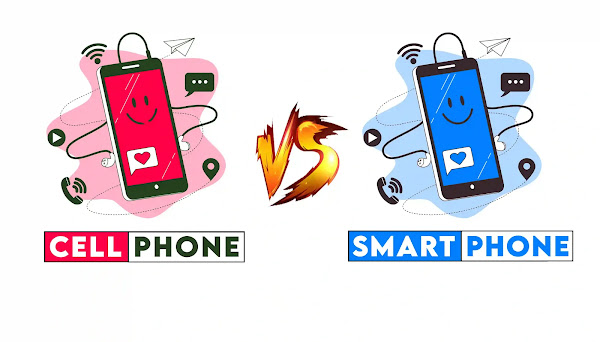When it comes to communication devices, cell phones and smartphones are two of the most commonly used devices. Although both are used to make calls and send text messages, there are some significant differences between the two. In this article, we will discuss the key differences between cell phones and smartphones.
Design and Display
One of the primary differences between cell phones and smartphones is their design and display. Cell phones are typically smaller and more compact than smartphones, which makes them easy to carry around. They usually have small screens that are 1.8 to 2.5 inches in size, and they have low-resolution displays. On the other hand, smartphones have larger screens and higher resolutions. They come in various screen sizes, ranging from 4 inches to 6 inches or more. Most smartphones use touchscreen technology, which makes them more intuitive and responsive to navigate.
Operating System
Another significant difference between cell phones and smartphones is the operating system they use. Most cell phones use a proprietary operating system that is exclusive to the manufacturer. For instance, Nokia phones use Symbian OS, while Blackberry phones use the Blackberry OS. These operating systems are limited in functionality and cannot be customized or upgraded. On the other hand, smartphones use more advanced operating systems such as Android, iOS, and Windows Phone. These operating systems are customizable, support third-party applications, and receive regular software updates.
Processing Power and Memory
Smartphones have more processing power and memory than cell phones. They are equipped with advanced processors and larger memory capacities, which enables them to perform complex tasks such as video editing, gaming, and multitasking. In contrast, cell phones have limited processing power and memory, which makes them suitable for basic communication functions such as calling and texting.
Internet Connectivity
Smartphones have built-in Wi-Fi, 3G, and 4G capabilities, which enable them to connect to the internet and browse the web. They also have built-in GPS, which allows for accurate navigation and location tracking. Cell phones, on the other hand, are not equipped with Wi-Fi, 3G, or 4G capabilities, which means that they can only connect to the internet through GPRS or EDGE networks. They also lack GPS, which makes it difficult to use them for location-based services.
Differences between Cell Phones and Smartphones
| Features | Cell Phones | Smartphones |
|---|---|---|
| Design and Display | Small, compact with small screens and low-resolution displays | Large screens, high resolution, and touchscreen technology |
| Operating System | Proprietary and exclusive to the manufacturer | Advanced operating systems such as Android, iOS, and Windows Phone |
| Processing Power and Memory | Limited processing power and memory | Advanced processors and larger memory capacities |
| Internet Connectivity | Connects through GPRS or EDGE networks | Built-in Wi-Fi, 3G, and 4G capabilities and GPS |
Conclusion
In conclusion, cell phones and smartphones are two distinct communication devices. Cell phones are basic devices that are designed for making calls and sending text messages. Smartphones, on the other hand, are advanced devices that offer more features and capabilities beyond basic communication functions. Understanding the differences between cell phones and smartphones can help you make an informed decision when selecting the right device for your needs.

